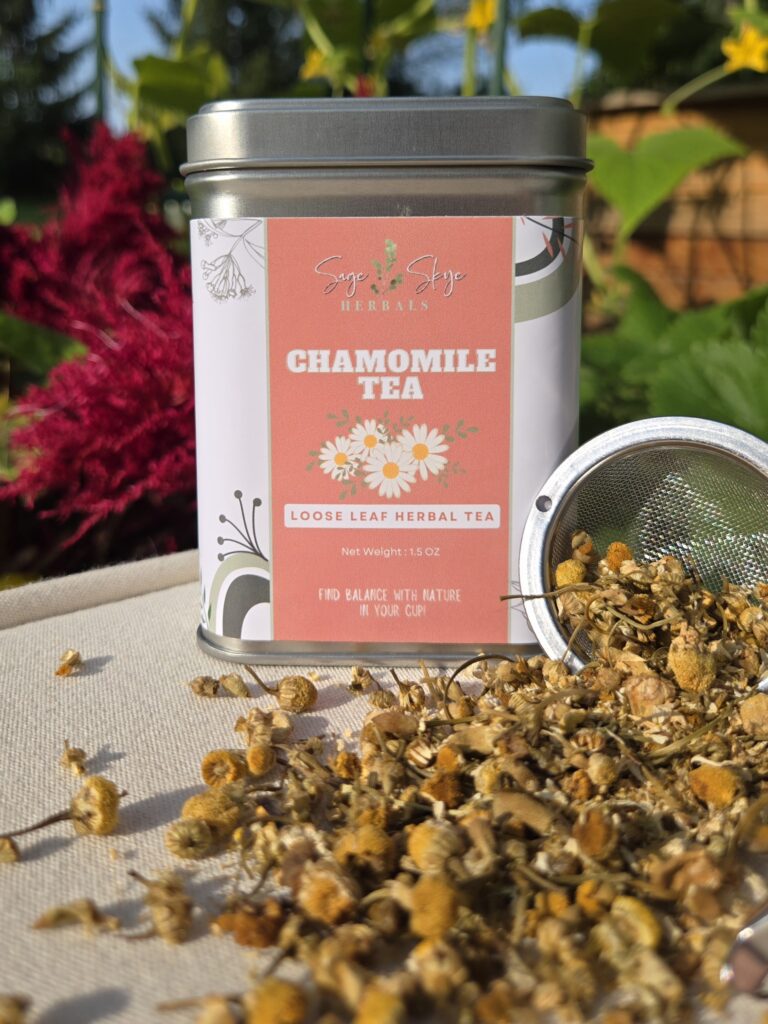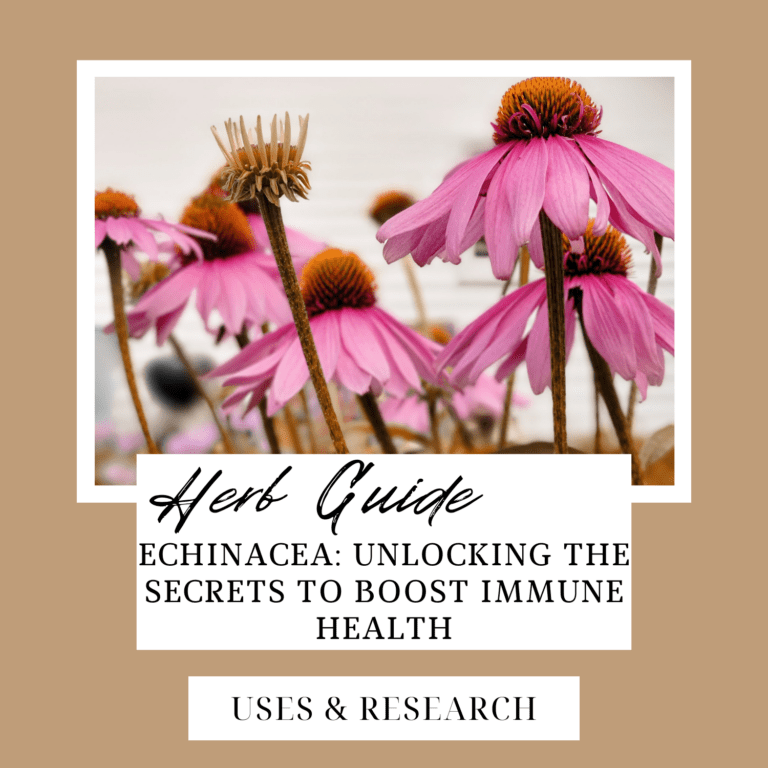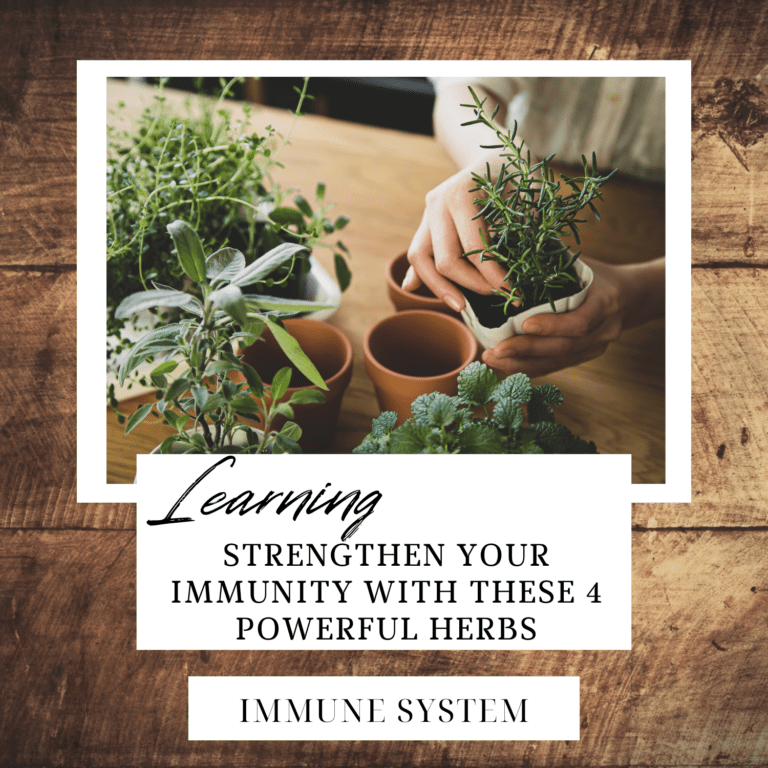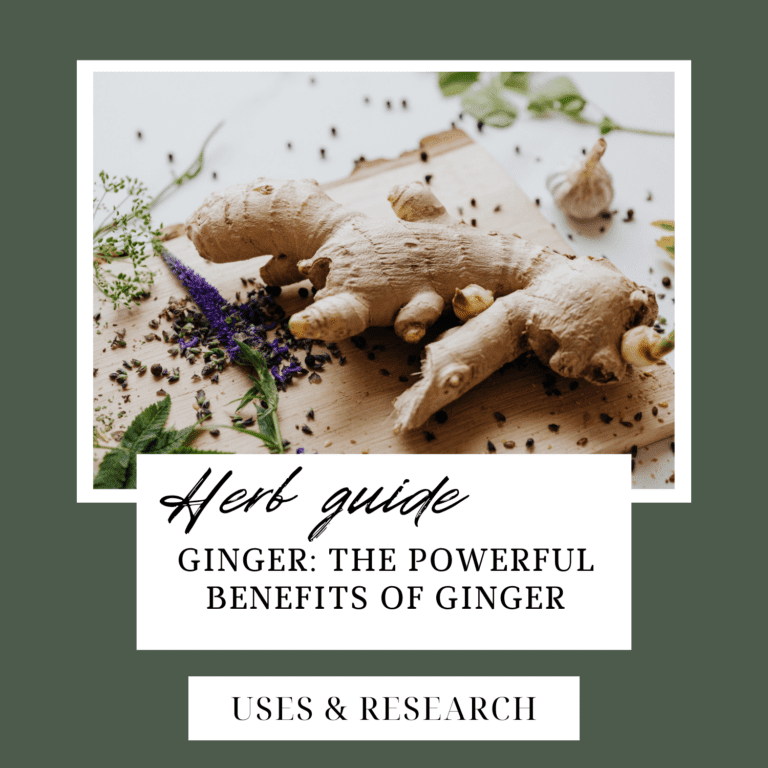
About Chamomile Flowers
Chamomile: Roman and English Chamomile
Matricaria recutita, Chamomilla recutita (Asteraceae)
Chamomile is a well-known and popular herb for tea drinkers. Chamomile has a long history of use as a calming and therapeutic herb with a wide range of uses! Its gentle nature and pleasant taste make it a favorite among herbalists and tea enthusiasts alike.
Parts Used: Fresh and dried flower heads
Chamomile Key Properties and Actions: Antispasmodic, anti- inflammatory, aromatic, carminative, diaphoretic, digestive tonic and nervine
Chamomile Energetics: Cooling and relaxing
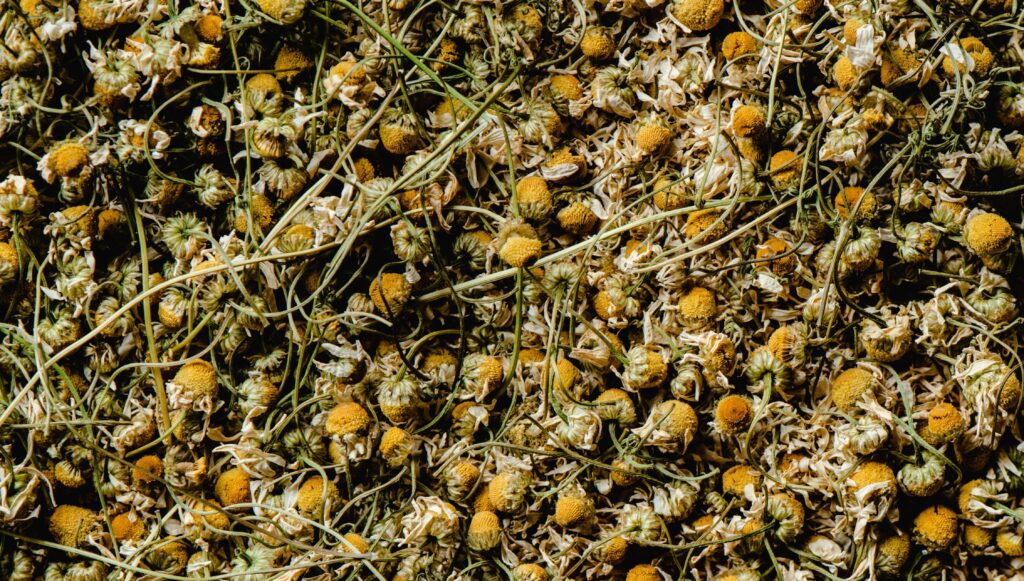
Potential Benefits of Chamomile
Digestive Issues
Chamomile is widely known for its ability to soothe the digestive system. It can help with various digestive discomforts, including indigestion, bloating, gas, and tummy cramps. Its anti-inflammatory and antispasmodic properties make it an excellent remedy for gastrointestinal discomfort.
Relaxation
Chamomile is renowned for its calming effects on the nervous system. It can help reduce stress and anxiety, promote relaxation, and improve sleep quality. Drinking chamomile tea before bed is a popular way to wind down and prepare for a great night’s sleep!
Irritation
Chamomile’s anti-inflammatory and antiseptic properties make it effective in reducing skin irritation and inflammation. It can be used topically to soothe irritated skin, reduce redness, and promote healing.
Eczema
Chamomile is often used as a natural remedy for eczema and other inflammatory skin conditions. Its anti-inflammatory and soothing properties can help reduce itching, redness, and irritation associated with eczema.
Bites and Stings
Chamomile can be applied topically to insect bites and stings to reduce inflammation and itching. It can also help speed up the healing process by promoting skin regeneration.
Menstrual Cramps
Chamomile tea can help alleviate menstrual cramps and discomfort due to its antispasmodic and anti-inflammatory properties. Drinking chamomile tea regularly during the menstrual cycle can help ease pain and reduce bloating.
Oral Health
Chamomile has been used in oral rinses to soothe mouth sores, gum inflammation, and other oral irritations. Its anti-inflammatory and antimicrobial properties can assist discomfort in the mouth and throat.

Chamomile Magic & Folklore
Chamomile has been associated with various magical and folklore traditions throughout history. It is often used in rituals and spells for protection, purification, and attracting abundance. In some cultures, chamomile is believed to bring good luck and promote peaceful energy.
Chamomile was historically used by the Egyptians and Romans for its medicinal and spiritual properties. It was believed to bring blessings and was used in rituals to cleanse and protect. Chamomile was also placed around the home to ward off negativity and bring about a sense of peace and harmony.
Ways to Use Chamomile
Chamomile Tea <— try our chamomile tea made with organic flowers!
Chamomile tea is one of the most popular ways to enjoy the benefits of chamomile. Simply steep a teaspoon of dried chamomile flowers in a cup of hot water for 5-10 minutes. Chamomile tea can be enjoyed hot or cold and can be sweetened with honey or lemon!
Topical Applications
Chamomile can be used in creams, lotions, and ointments to aid skin issues. Chamomile-infused oil or salves can be applied to the skin to reduce inflammation and soothe irritation.
Baths and Soaks
Adding chamomile to a warm bath can help soothe tired muscles, reduce stress, and promote relaxation. Chamomile baths can also help with skin conditions like eczema and psoriasis.
Pillow Sachets
Place dried chamomile flowers in a small sachet and put it under your pillow to promote restful sleep and prevent nightmares.
Chamomile Safety and Precautions
Allergies: Some individuals may be allergic to chamomile, especially those with allergies to plants in the Asteraceae family, such as ragweed, daisies, and marigolds. Always perform a patch test before using chamomile topically.
Interactions with Medications: Chamomile can interact with certain medications, such as blood thinners and sedatives. Always consult a healthcare provider before using or adding anything to your routine or diet.
Pregnancy and Breastfeeding: Pregnant and breastfeeding women should always consult with a healthcare provider before using chamomile, as it may have effects on pregnancy or lactation.
Disclaimer
These statements have not been evaluated by the Food and Drug Administration. This product and/or blog article is not intended to diagnose, treat, cure, or prevent any disease.
Sources
- Easley, Thomas and Steven H. Horne. The Modern Herbal Dispensatory: A Medicine-making Guide. Berkeley, California, North Atlantic Books, 2016.
- American Botanical Council
- National Center for Complementary and Integrative Health
- Chevallier, Andrew. Encyclopedia of Herbal Medicine 2nd American ed., DK Pub., 2000.
- Healthline

